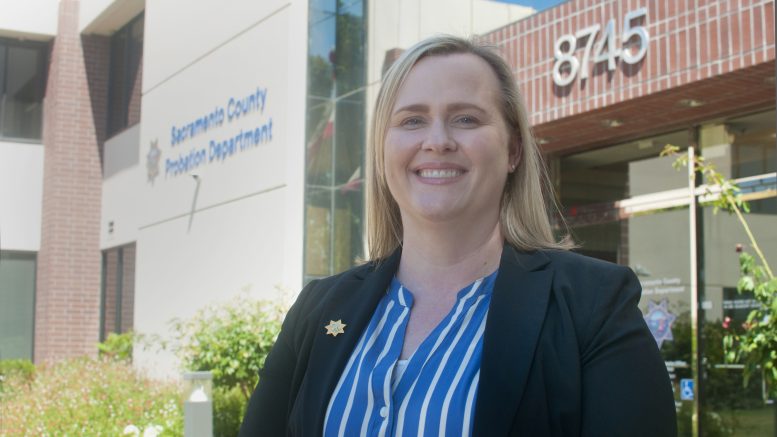The first “probation officer” was a bootmaker from Boston. In 1841, John Augustus volunteered to watch over a man in lieu of sending him to prison. By his own account, over the next decade he oversaw 1,100 men, women and children. He is credited with introducing the idea of probation “to the benefit of the prisoners and of society,” in which he emphasized the importance of family support and employment in his charges’ rehabilitation. Unfortunately, since then, probation’s role tended to be more punitive, but in recent years, many departments—including here in Sacramento County—have realigned with Augustus’ vision emphasizing treatment and re-entry support.
“There’s been a huge culture shift within our department. I’ll attribute a lot of that to our former chief, Lee Seale, and the environment that he created (which was) a lot more inclusive,” says Robyn Howland, Assistant Chief Deputy over the Adult Community Corrections Division, noting that current Chief Marlon Yarber has continued to steer the department down the same path. “We’re solution-driven, especially on the leadership team. Don’t just come with problems, come with solutions too. We want to be part of the solution, how can we do that? (It’s) reaching out to other county agencies, community-based organizations, community partners. It’s how can we, as a total, get the job done and get it done well so we’re helping our clients?”
To ensure clients are getting that support they need, Sacramento County Probation Department collaborates with other agencies and organizations to provide a full spectrum of services, including mental and physical health, housing, employment assistance, job training, education and more. One of those partners is Leaders in Community Alternatives, which offers virtual and in-person behavioral health programs during and after clients’ probation. The department also works hand-in-hand with the county’s collaborative court system that diverts clients away from jail and into treatment.
“Treating people as people, not as someone ‘on probation.’ You’re still a person, a human being. I like to think of probation officers as helpers. Over my career, I don’t think I’ve ever talked to anyone who didn’t get into this job to help.”
Robyn Howland
Assistant Chief Deputy over the Adult Community Corrections Division
“It is setting them up for success, getting them all those connections like jobs and housing. It’s cognitive behavioral therapy too, helping them transition their thinking (away from) a criminal mindset and start thinking of things from a different perspective,” Howland says. “We’re moving toward more evidence-based practices. … It’s not just doing a program, but making sure the program works so we can tailor it to clients and make sure they’re getting what they need individually.”
Currently, the Sacramento County Probation Department is working to further expand those services to better support clients, including:
- Assembly Bill 178 approved a $1.3 million grant to fund mobile probation units to better serve unhoused populations and help probation officers meet clients where they are.
- In preparation for Senate Bill 1223, which expanded the eligibility criteria for mental health diversion, the department has obtained support from the Board of Supervisors to create a mental health unit to handle additional clients.
“It’s breaking that cycle of incarceration, of being involved in the criminal justice system, so they can be productive members of society. That should equal less victims. Accountability is part of that, but care and compassion are as well. Treating people as people, not as someone ‘on probation.’ You’re still a person, a human being,” Howland says. “I like to think of probation officers as helpers. Over my career, I don’t think I’ve ever talked to anyone who didn’t get into this job to help.”


























